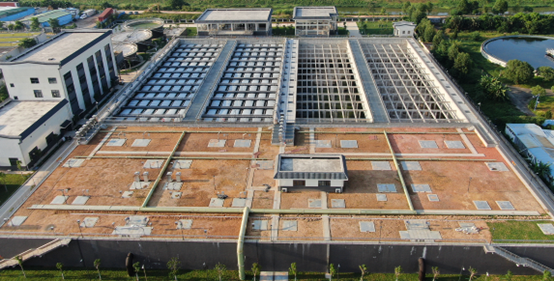An Ideal for Urban Areas Where Land is Scarce :the Application of RPIR Technology in Space-Saving Sewage Treatment Plant
As cities continue to grow, every day, more people move to urban areas, seeking opportunity and a better life. However, this growth brings significant challenges, especially in managing waste. Sewage treatment, essential for public health and a clean environment, becomes a critical concern. Traditional sewage treatment plants, often large, complex, and expensive to operate, require significant land and resources. As cities like Dongguan expand, finding innovative and efficient solutions for sewage treatment is essential. In Dongguan, a major industrial city in southern China, the rapid population and industrial growth have strained the existing infrastructure. The city needs a modern, efficient sewage treatment system to support its development and protect its environment. The Liaobu Zhuyuan Sewage Treatment Plant, with its innovative RPIR technology, offers a promising solution.
The Liaobu Zhuyuan Sewage Treatment Plant represents a significant step forward in wastewater management. This state-of-the-art facility showcases Dongguan's commitment to environmental sustainability and public health. At the heart of the plant lies the revolutionary RPIR technology, a game-changer in wastewater treatment. This advanced system offers numerous advantages over conventional methods. The plant's design prioritizes efficiency and minimal environmental impact. It occupies a smaller footprint compared to traditional plants with similar capacity, which is crucial in densely populated urban areas where land is scarce. The plant's location was strategically chosen to serve a large population while minimizing its visual impact on the surrounding landscape. The Liaobu Zhuyuan Sewage Treatment Plant is not just a technological marvel; it is a symbol of Dongguan's dedication to sustainable urban development.

RPIR technology represents a major advancement in sewage treatment. RPIR systems are compact, requiring less space than conventional plants, making them ideal for urban areas where land is scarce. They are also energy-efficient, using less power to treat the same amount of wastewater, which translates into lower operating costs for the city. Additionally, RPIR is easier to operate and maintain than traditional system.RPIR technology has fewer moving parts, which reduces the risk of breakdowns. This simplicity allows for a smaller workforce and less specialized training. The RPIR technology at the Liaobu Zhuyuan plant ensures efficient treatment while minimizing operational complexity, translating into cost savings and improved reliability over the long term.
 Protecting the environment is a top priority for Dongguan. The Liaobu Zhuyuan plant was designed to meet the most stringent effluent standards, known as Class A standards. These standards are among the strictest in the world. They ensure that the treated water released from the plant is safe for the environment. It can be used for irrigation, industrial purposes, or even discharged into rivers and streams without causing harm. The plant's advanced treatment process removes pollutants and contaminants effectively. This includes removing nitrogen and phosphorus, nutrients that can harm aquatic life if they are present in high concentrations. The clean water released from the plant helps to improve the health of the nearby Hengzhu River. This contributes to the overall ecological balance of the region.
Protecting the environment is a top priority for Dongguan. The Liaobu Zhuyuan plant was designed to meet the most stringent effluent standards, known as Class A standards. These standards are among the strictest in the world. They ensure that the treated water released from the plant is safe for the environment. It can be used for irrigation, industrial purposes, or even discharged into rivers and streams without causing harm. The plant's advanced treatment process removes pollutants and contaminants effectively. This includes removing nitrogen and phosphorus, nutrients that can harm aquatic life if they are present in high concentrations. The clean water released from the plant helps to improve the health of the nearby Hengzhu River. This contributes to the overall ecological balance of the region.
 LOADING...
LOADING...
 DATE:2024年06月20日
DATE:2024年06月20日
